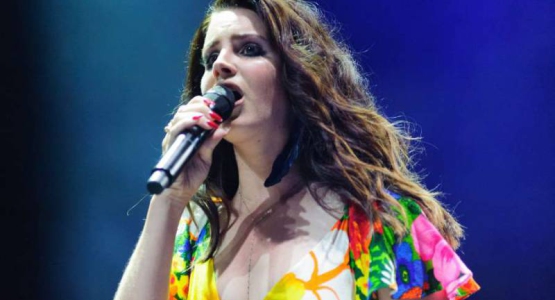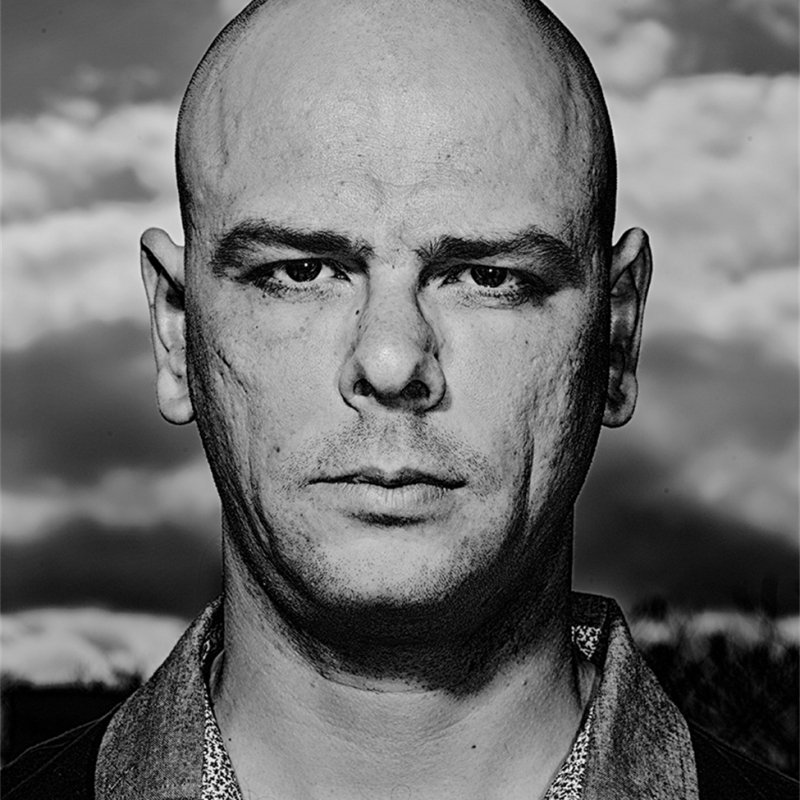Pop en literatuur (50): Lana del Rey en Walt Whitman
Cors Pop & Literatuurlijst op Spotify:
Ter ere van het 50ste Pop & Literatuurblog van Cor hebben wij Cor's Pop & Literatuurlijst in het leven geroepen, nú te beluisteren op Spotify.
Luister goed, en lees hoe legendarische muzikanten zich door legendarische schrijvers lieten inspireren in de meer dan 50-delige blogserie.
Lana del Rey (pseudoniem van Elizabeth Woolridge Grant) verwerkt regelmatig literaire verwijzingen in haar teksten. Zo noemde ze een van haar albums Ultraviolence, een knipoog naar A Clockwork Orange van Anthony Burgess (en de gelijknamige verfilming van Stanley Kubrick). Interessanter vind ik haar nummer ‘Body Electric’, waarin ze verwijst naar een gedicht van Walt Whitman. Een gedicht dat nogal verschilt van het gedicht dat ik vorige week besprak.
‘Body Electric’ verscheen op de ep Paradise, maar daarnaast maakte del Rey een korte film, getiteld Tropico, waarin het nummer ook voorkomt. De film is een variant op het scheppingsverhaal uit de Bijbel, met John Wayne als schepper. Nadat John het licht heeft geschapen zien we Lana del Rey als Maria bidden tot John om vergeving van onze zonden. Daarna verplaatst de handling zich naar de Hof van Eden, waar Lana del Rey optreedt als Eva, aan de zijde van Adam. Ook John Wayne is van de partij (met geweer en al), evenals Elvis Presley en Marilyn Monroe. En Jezus. Tegen deze achtergrond begint het nummer ‘Body Electric’. In het tweede deel van de film verplaatst de handeling zich naar het heden. Eva is stripper in een nachtclub geworden en Adam is de leider van een bende. Hier leest Lana del Rey een deel van het gedicht van Whitman voor.
Lana del Rey – Body Electric
Elvis is my daddy, Marilyn’s my mother,
Jesus is my bestest friend.
We don’t need nobody
'Cause we got each other,
Or at least I pretend.
We get down every Friday night,
Dancin’ and grindin’ in the pale moonlight.
Grand Ole Opry, we're feelin’ alright,
Mary prays the rosary for my broken mind.
(I said don't worry about it)
I sing the body electric,
I sing the body electric, baby.
I sing the body electric,
I sing the body electric,
Sing that body electric,
Sing that body electric.
I’m on fire,
Sing that body electric.
Whitman is my daddy, Monaco’s my mother,
Diamonds are my bestest friend.
Heaven is my baby, suicide’s her father,
Opulence is the end.
We get down every Friday night,
Dancin’ and grindin’ in the pale moonlight.
Grand Ole Opry, we're feelin’ alright,
Mary prays the rosary for my broken mind.
(I said don't worry about it)
I sing the body electric,
I sing the body electric, baby.
I sing the body electric,
I sing the body electric,
Sing that body electric,
Sing that body electric.
I’m on fire,
Sing that body electric.
My clothes still smell like you,
And all the photographs say you’re still young.
I pretend I’m not hurt
And go about the world like I’m havin’ fun.
We get crazy every Friday night,
Drop it like it’s hot in the pale moonlight.
Grand Ole Opry, feelin' all right
Mary's swayin’ softly to her heart's delight.
I sing the body electric,
I sing the body electric, baby.
I sing the body electric,
I sing the body electric,
Sing that body electric,
Sing that body electric.
I’m on fire,
Sing that body electric.
I sing the body electric, baby.
I sing the body electric, baby.
I sing the body electric, baby.
Walt Whitman – I Sing the Body Electric
1
I sing the body electric,
The armies of those I love engirth me and I engirth them,
They will not let me off till I go with them, respond to them,
And discorrupt them, and charge them full with the charge of the soul.
[…]
Womanhood, and all that is a woman, and the man that comes from woman,
The womb, the teats, nipples, breast-milk, tears, laughter, weeping, love-looks, love-perturbations and risings,
The voice, articulation, language, whispering, shouting aloud,
Food, drink, pulse, digestion, sweat, sleep, walking, swimming,
Poise on the hips, leaping, reclining, embracing, arm-curving and tightening,
The continual changes of the flex of the mouth, and around the eyes,
The skin, the sunburnt shade, freckles, hair,
The curious sympathy one feels when feeling with the hand the naked meat of the body,
The circling rivers the breath, and breathing it in and out,
The beauty of the waist, and thence of the hips, and thence downward toward the knees,
The thin red jellies within you or within me, the bones and the marrow in the bones,
The exquisite realization of health;
O I say these are not the parts and poems of the body only, but of the soul,
O I say now these are the soul!
Na het voorlezen van (bovenstaand deel van) het gedicht van Whitman, begint het volgende nummer, ‘Gods & Monsters’. Daarna volgen nog meer gedichten, onder andere een lange passage uit ‘Howl’ van Alan Ginsberg, dat ik eerder in deze reeks besprak in relatie tot de band Nana Grizol. De film Tropico is een bizarre, surrealistische vermenging van christelijke symboliek, populaire (Amerikaanse) cultuur, literatuur, seks, geweld, muziek en dans. Het voert te ver om in dit korte bestek de film in zijn geheel te bespreken. De regisseur, Anthony Mandler, gaf in een interview in elk geval enige uitleg. Maar het is natuurlijk het beste om zelf een keer een half uur de tijd te nemen om de film te bekijken.
De tekst van ‘Body Electric’ sluit nauw aan bij de beelden in de film. Ook hier zien we de combinatie van profane en sacrale symboliek: Elvis Presley en Marilyn Monroe naast Jezus en Maria. ‘Grand Ole Opry’ is een wekelijks tv-programma met countrymuziek live uit Nashville. Seksualiteit en spiritualiteit gaan hand in hand, op een manier zoals we die ook tegenkomen bij een artiest als Prince.
Dan het gedicht. De eerste zin van Whitman stelt de lezer al direct voor een raadsel. Is ‘electric’ hier weer op te vatten als een nabepaling bij ‘body’, zoals ‘strange bij ‘vigil’, in het gedicht van vorige week? Of gaat het hier eerder om een soort resultatieve werkwoordsbepaling (zoals in ‘ik verf de deur groen’)? Gezien de rest van de eerste strofe lijkt dat laatste het meest waarschijnlijk: de ik zegt immers ‘[I] charge them […]’.
De rest van het gedicht is een lange ode aan het menselijk lichaam. Daarbij maakt Whitman gebruik van enkele uitgebreide opsommingen. Het vrouwelijk lichaam en het mannelijk lichaam komen in gelijke mate aan bod. ‘The man’s body is sacred and the woman’s body is sacred,’ schrijft hij. In het zevende deel beschrijft hij hoe hij op een slavenmarkt een handelaar helpt. Dat leidt opnieuw tot het aanprijzen van de fysieke kwaliteiten van man en vrouw, maar ook tot het besef dat alle mensen gelijk zijn: ‘Within there runs blood,/ The same old blood! the same red-running blood!/ There swells and jets a heart, there all passions, desires, reachings, aspirations,/ (Do you think they are not there because they are not express’d in parlors and lecture-rooms?)’. Het gedicht krijgt hier een politieke lading, die later nog eens wordt onderstreept: ‘Have you ever loved the body of a woman?/ Have you ever loved the body of a man?/ Do you not see that these are exactly the same to all in all nations and times all over the earth?’
Het gedicht eindigt met de woorden die Lana del Rey ook in Tropico citeert: ‘O I say these are not the parts and poems of the body only, but of the soul,/ O I say now these are the soul!’ Whitman stelt hier à la Spinoza lichaam en ziel gelijk aan elkaar. Het lichaam is niet alleen de drager van de ziel, ze vallen samen. Misschien is dat wat de titel van het gedicht ook beduidt: de lyriek geeft ziel aan het lichaam.
Dat sluit aan bij de manier waarop het lichamelijke en het spirituele in elkaar vervloeien bij Lana del Rey. In haar tekst (en in de film) raken het fysieke en het geestelijke voortdurend aan elkaar. Op een andere manier dan Whitman overbrugt ze de kloof tussen lichaam en geest. Het laatste couplet geeft echter een onverwachte motivatie voor haar poging om het lichaam te willen ‘bezielen’. In dat couplet wordt duidelijk dat het nummer eigenlijk gaat over een verloren geliefde: ‘My clothes still smell like you,/ And all the photographs say you’re still young./ I pretend I’m not hurt/ And go about the world like I’m havin’ fun’.
Om deze externe speler te kunnen tonen vragen wij je om cookies te accepteren van de categorie Sociale Media. Ververs daarna deze pagina.

